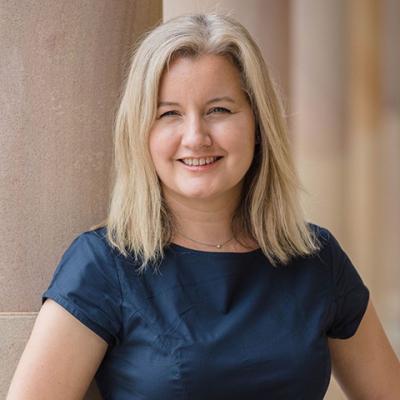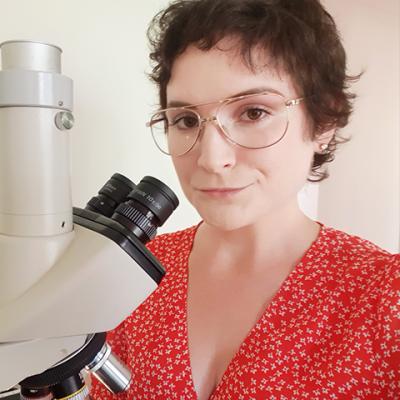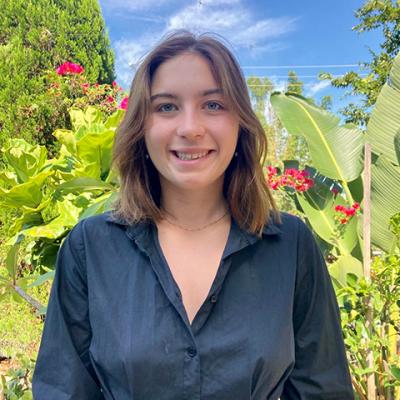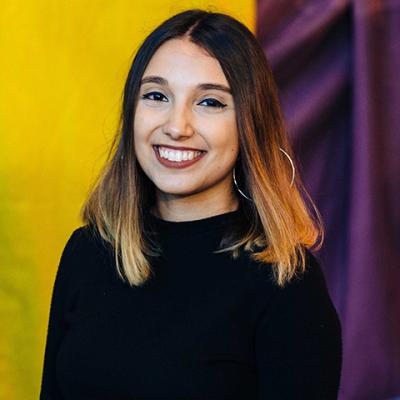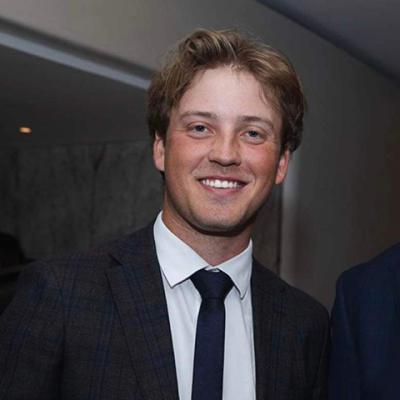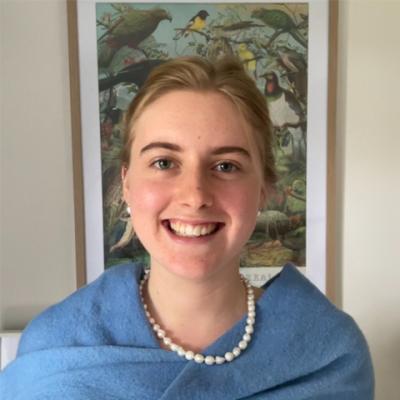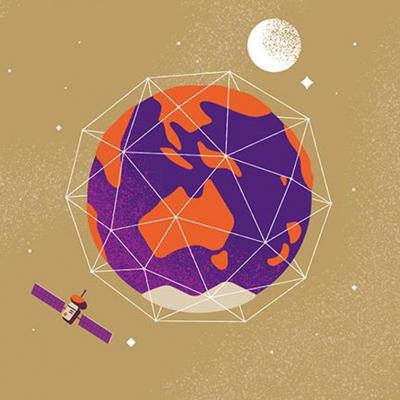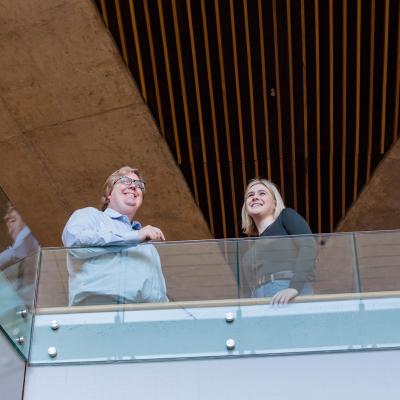The thought of jumping straight into postgraduate-level study after your bachelor's program can seem daunting. If you've had an honours program suggested to you, you might be wondering, "why do I need to study an extra year?" or "is honours worth it?".
These are fair questions, but don't dismiss the idea too quickly.
An honours program, such as the Bachelor of Arts (Honours), provides a unique experience to deep dive into an academic topic – while being closely supported by a supervisor. If you've got a niche passion or a dream research project in mind, an honours year could be your perfect chance to pursue this.
Here's a snapshot of the benefits you'll get from an honours program:
- Develop specialised knowledge in your chosen major.
- Learn to think critically.
- Sharpen your communication, research and problem-solving skills.
- Get one-on-one guidance while working with a supervisor to develop, write and submit a thesis or research project.
Want to know more? We've asked some current honours students and recent graduates to share their experiences. We also have some insights from Dr Amy Hubbell, the Deputy Associate Dean (Academic) and Honours Coordinator for UQ's Faculty of Humanities, Arts and Social Sciences.
Why complete honours?
Increase your employability
The assumed education level of an employable citizen seems to be continually rising as the world changes. As new technology is introduced into an increasingly globalised society, people are expected to develop the necessary skills for a productive career before they even join the workforce. A program like the Bachelor of Arts (Honours) helps you gain that edge while undertaking an engaging and exciting academic journey.
Fun fact: In 2021, 5.5 million people in Australia had a bachelor's degree or higher. This is 30% more than in 2016, just 5 years prior.
(Source: Australian Bureau of Statistics)
Put simply, an honours degree gets you more job-ready than a bachelor's program alone. Graduating with honours demonstrates to the global workforce that you have successfully completed a self-directed, academic project.
Dr Amy Hubbell believes this experience is an invaluable opportunity that validates students' lifelong skills in research and writing. It's not easy to complete, but that's kind of the point.
UQ alum Madeleine Green now works as a training and professional development program officer at Museums and Galleries Queensland. She agrees that her experience completing honours enhanced her employability through the opportunity to practise deep learning.
The intensive nature of the program allowed her to dive into her specialisation, encouraging critical thinking and creative solutions. Her major in archaeological studies led to a project examining a pathology disease in Homo erectus skulls.
For Madeleine, honours was a formative experience that required a proactive approach to practical aspects of the program, including finding a supervisor.
Amy confirms that the key to a successful project is to start early. She suggests reaching out to various lecturers to chat over coffee in order to decide who would be the best fit as a supervisor for your project. Not only does this show initiative and enthusiasm, which academics look for in a research partner, but it also ensures you'll have an excellent team to work with across the year.
On top of this, honours can be a rewarding experience that encourages you to follow your passions.
"Honours is an opportunity to tackle questions that remain."
- Dr Amy Hubbell
Enrich your knowledge
Georgia Forster, a current Bachelor of Advanced Humanities (Honours) student, believes the program has equipped her with skills in two key areas: critical thinking and detailed analysis.
She loves this program as it encouraged her to challenge her perspective and learn deeply, while gaining an understanding of interdisciplinary thinking.
Georgia’s favourite part of the honours program has been the insightful and engaging coursework subjects.
"These classes have allowed me to consider ideas that I never would have otherwise and have also really boosted my confidence," she says.
Elena Dias-Jayasinha, a recent graduate, found her experience provided her with the skills to enter the workforce. She studied a Bachelor of Advanced Humanities (Honours) with a major in Art History, which led her to examine the influence of Japanese culture on a contemporary Brisbane artist.
Elena's honours project required in-depth archival research, which she continues to use in her current role as associate curator at the Museum of Brisbane. This strengthened her research skills while she developed expertise alongside a network of industry connections.
Forge connections
Oscar O’Brien, a current Bachelor of Advanced Humanities (Honours) student, has had the opportunity to undertake multiple interstate research trips as part of his honours project.
While his major is in Western Civilisation, Oscar’s interests lie in theatre. His research has allowed him to form invaluable connections with people across the GLAM (galleries, libraries, archives and museums) sector, including archivists, actors, directors, historians, and philanthropists.
"These are connections that I can appreciate have only been made possible as a result of embarking upon honours," he says.
He also acknowledges the value of the honours program as an opportunity to develop as both an academic and employee.
"The lessons you learn are also very unique to the process of taking on such a significant project, and they are the kinds of lessons that you’re glad you had the opportunity to learn, even if they are mostly through mistakes," says Oscar.
Overall, honours provides emerging professionals with the practical skills and enriched knowledge to enter the workforce with the confidence to succeed. The connections you make along the way are simply the cherry on top.


